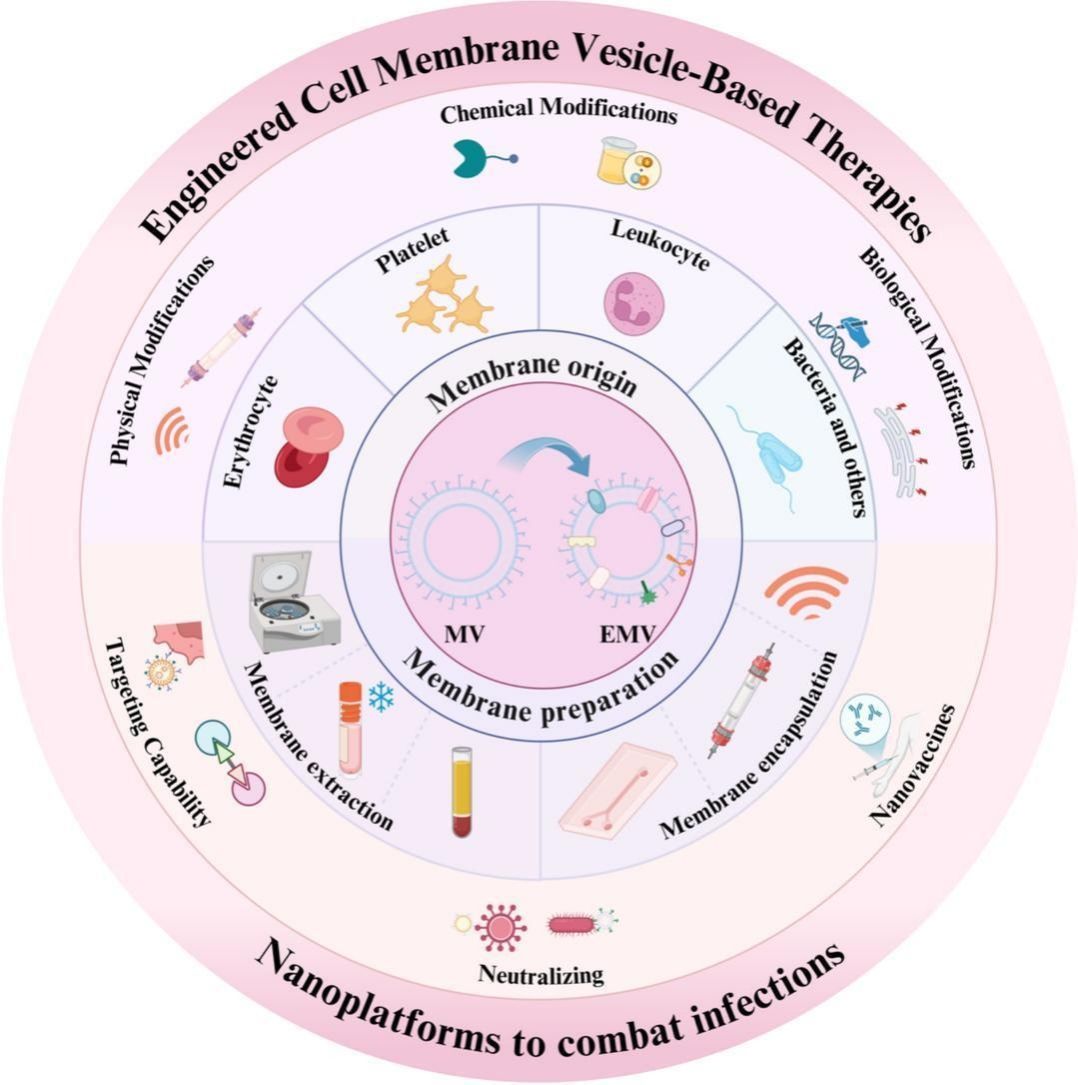Abstract
Infectious diseases continue to present significant global public health challenges, with pathogens such as bacteria and viruses posing substantial threats to human health. Conventional therapeutic approaches face several limitations, including the rising prevalence of drug resistance, suboptimal targeting, and adverse side effects, which collectively complicate clinical management. Cell membrane vesicles (MVs), characterized by their natural biocompatibility and outstanding drug delivery capabilities, have emerged as a promising platform for addressing these challenges in the treatment of infectious diseases. To further augment the therapeutic potential of MVs, engineering modifications have been extensively employed to enhance their functionality and efficacy. This review provides a comprehensive overview of the production and modification techniques associated with MVs, emphasizing recent advancements in the development of engineered membrane vesicles (EMVs) as versatile nanoplatforms for combating infectious diseases. Additionally, the clinical prospects and existing challenges of EMVs are critically analyzed, and recommendations are proposed to guide future research and facilitate their clinical translation into practical applications in combating infectious disease.

文章链接:https://doi.org/10.1016/j.jconrel.2025.113884